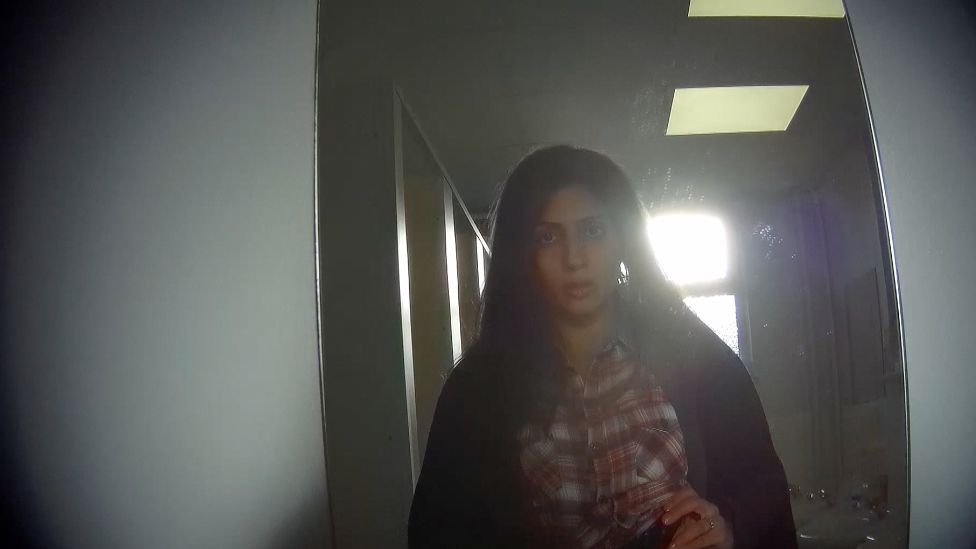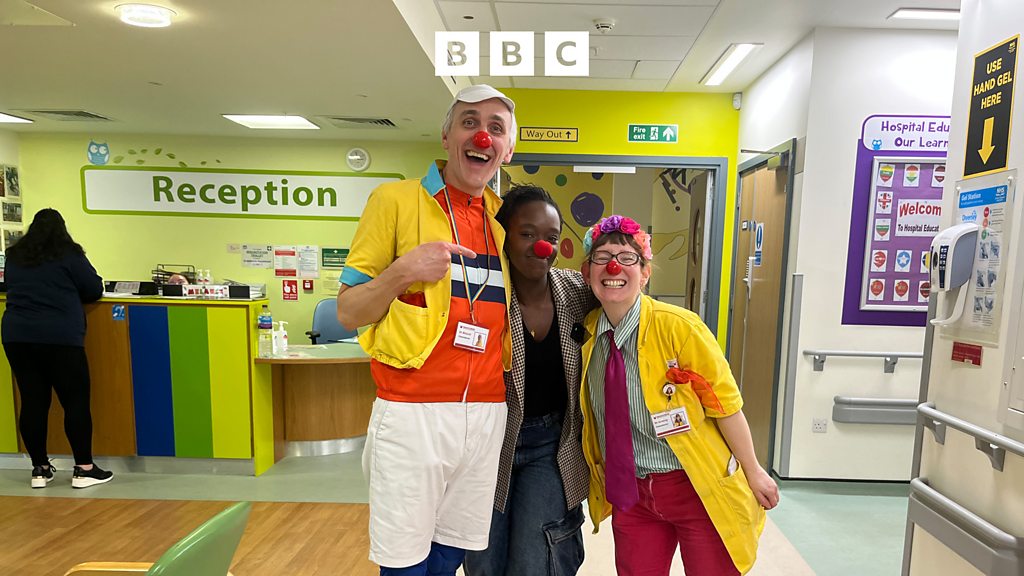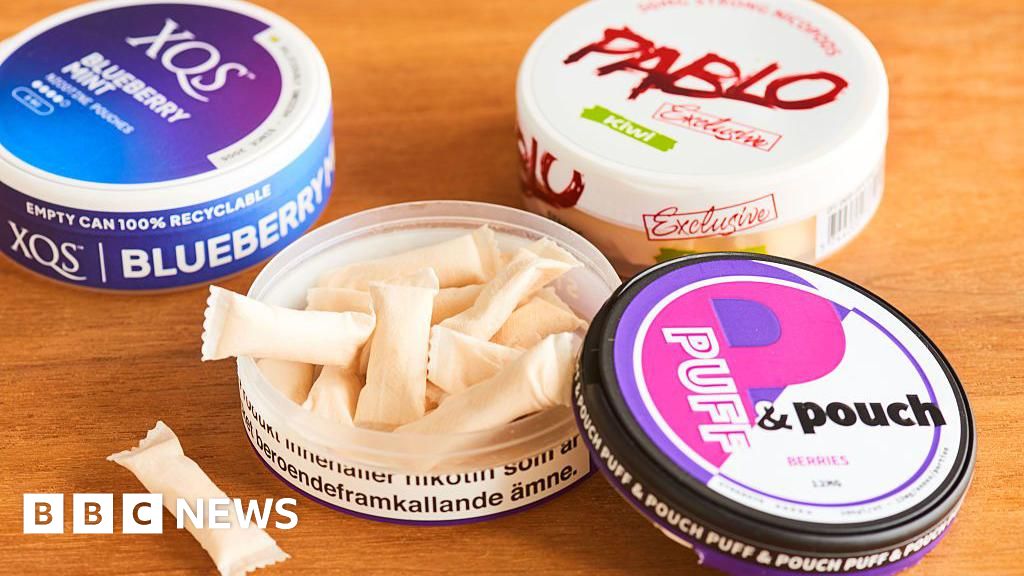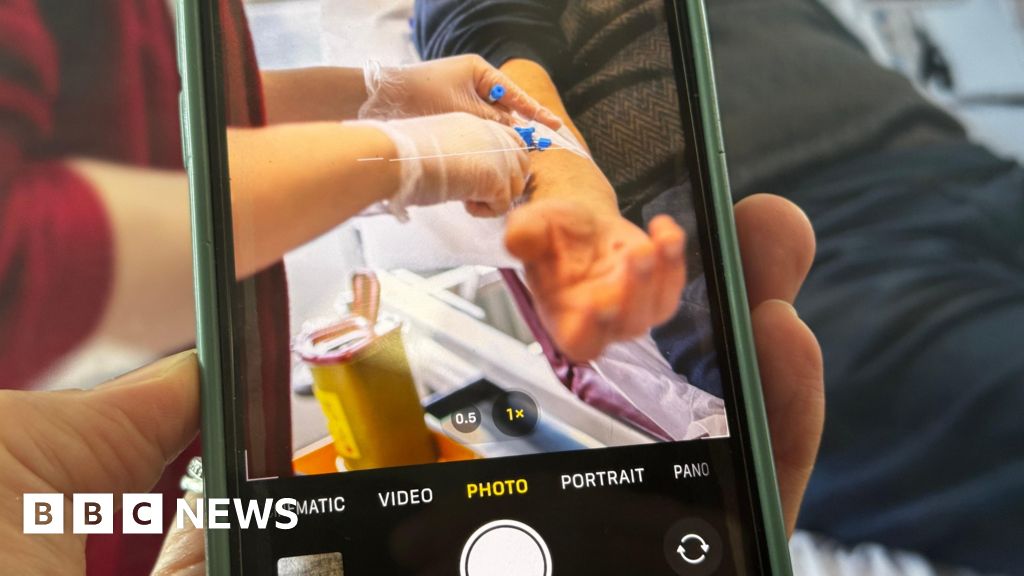ARTICLE AD BOX

BBC Panorama conducted undercover filming in three pregnancy crisis centres to see how they operate
By Eleanor Layhe & Divya Talwar
BBC Panorama
Women are being misled and manipulated about abortion by some crisis pregnancy advice centres in the UK, according to evidence from a Panorama investigation.
The centres operate outside the NHS and tend to be registered charities.
Most say they don't refer women for abortions, but offer support and counselling for unplanned pregnancies.
But the BBC's investigation reveals more than a third of these services give misleading medical information or unethical advice, and sometimes both.
Abortions have been available on the NHS in England, Scotland and Wales for more than 50 years. They have been legal in Northern Ireland since 2019.
Pregnancy counselling is available through the NHS and regulated abortion providers, but searching online, Panorama identified 57 crisis pregnancy advice centres advertising.
Most claim to provide a safe space for women to receive support and accurate information about their options.
The BBC decided to investigate after hearing from women who had been to these centres. One said she had been "traumatised" and that the centre had tried to "manipulate" her into not having an abortion.
The Panorama team wanted to find out more, so contacted all 57, posing as women wanting advice about their options, including abortion.
Of these, 34 directed us to the NHS website or regulated abortion providers.
Some 21 centres gave misleading medical information and/or unethical advice about abortion
- Seven centres said having a termination could lead to "post-abortion syndrome" - a mental health condition likened to post traumatic stress disorder, which is not recognised by the NHS
- Eight centres linked abortion to infertility and problems carrying future pregnancies to term
- Five centres linked abortion to an increased risk of breast cancer
The NHS says, like any medical treatment, there is a small risk something could go wrong, and that having an abortion does not increase the risk of breast cancer, infertility, or mental health problems.
Leading medic in the field of obstetrics, and director of an abortion provider, Dr Jonathan Lord, said women needed an "informed choice" which required "good quality unbiased information".
During telephone and in-person consultations, Panorama was told:
- Women who have an abortion "suffer emotional disturbances" because "they know they have been a mother, but they have no baby"
- They would suffer "consequences" after having an abortion and "walk out of here a different person"
- Women who "move on quickly" after an abortion have done so because they have "blocked out of their minds that it was a real baby"
- That it would be "amazing" to have "your own child" and asked how it would feel to "actually hold your own baby"
One centre said women could experience hallucinations involving babies crying and have "nightmares of something happening to a child" after an abortion.
Jo Holmes, of the British Association for Counselling and Psychotherapy, said: "From a professional-standards point of view... they are not there to advise, they are not there to guide, and they are... not there to give their opinion. This language is designed to make the client feel guilty."
If you need any help with the issues raised in this story, details of help and support can be found here.
We wanted to find out more about how the centres operate so we went undercover.
We visited the Crossroads Crisis Pregnancy Centre in Harrow, north-west London, which opened in 2005 and is based in a Baptist church. The centre's website says its trained counsellors provide free and accurate information.
An undercover reporter told a counsellor she was three weeks pregnant, and asked what an abortion would involve at that stage. The counsellor replied: "The baby is waiting for the pill to kill it and to get rid of it."
Listing depression and infertility as possible side effects, she added: "There is no kind of safe thing because women have had the abortion and some will bleed to death, and all sorts of things happen."
The counsellor later said she was not telling the undercover reporter what to do about her pregnancy.
Crossroads Pregnancy Advice Centre and the counsellor did not respond to Panorama's request for comment.
WATCH: Counsellor at Crossroads Pregnancy Advice Centre speaks to our undercover reporter
We also investigated the Tyneside Pregnancy Advice Centre in Newcastle upon Tyne. Its website says it has a "Christian ethos" and is committed to providing a caring, compassionate, and professional service. The centre is run by Dr Chris Richards who has anti-abortion views. He is also an NHS paediatrician.
Our undercover reporter visited, saying she was married with two children and had discovered she was pregnant again.
The adviser asked her what her children would think about her having an abortion. "Would you be able to tell your daughters about having a termination? Or would it be something you'd always have to keep quiet about?" she said.
The reporter was handed a leaflet which said "avoidance of children" was a psychological risk. Asked what that meant, the counsellor replied: "Having the termination and feeling like maybe you shouldn't be around children as a result."
The counsellor added if the reporter wanted to have an abortion, she should consult the NHS website.
Ms Holmes described the exchanges as extraordinary. "It's the woman's experience and she's just trying to manipulate the conversation to her end," she said.
Dr Richards said: "We have a 14-year track record of compliance with all our regulatory obligations and over 1,200 women have benefited from the work of our staff and volunteers." He added that anyone who has read the centre's website can see "where they are coming from".
You can watch Panorama: Crisis Pregnancy Centres Uncovered on 27 February on BBC One at 20:30 GMT and iPlayer
Stanton International is an influential anti-abortion group in America, where it has set up five crisis pregnancy centres. It also has a centre in Belfast called Stanton Healthcare. Its website says it is a safe place where "women are empowered to make their best choice".
Before we went undercover, we spoke to Ashleigh, 30, who contacted the centre after discovering she was pregnant in 2021.
The mother-of-five said she had wanted an abortion and that the centre had told her over the phone she could get one on-site. When she arrived for her appointment, she said she was told she needed an ultrasound scan. It revealed she was pregnant with twins.
"They said, 'you have to look, these are your babies' and when I finally turned to look, I saw two wee babies on the screen," she said. "I wiped my own jelly off and left the room... That was enough for me."
Ashleigh went ahead with an abortion and said her experience at Stanton Healthcare had left her traumatised.
Dr Lord has criticised the use of ultra-sound scans at crisis pregnancy advice centres. He said: "Scans are a tool, they can be useful in some circumstances, but they can actually be quite intrusive in others."
The use of scans, he said, can cause guilt for pregnant women considering abortion and therefore be manipulative. Stanton Healthcare will only see women who provide a positive pregnancy test at the centre.
Claire, who was 10 weeks into a planned pregnancy, agreed to secretly film for Panorama.
During the consultation, she was told by an adviser about "post-abortive syndrome," described as a severe anxiety that "erodes your mental health" for six months to six years. The adviser also outlined what the centre described as the side effects of the abortion pill, saying it contained "a whopping dose of female hormone".
"Within 48 hours your baby will die of hunger and thirst. It will be starved to death," she said.
Claire was also told that the centre provided aftercare and financial help to women who went ahead with their pregnancies.
As she left, she was given leaflets containing graphic images of aborted foetuses and information which suggested she could get breast cancer if she had a termination.
'Significant harm and damage'
Dr Lord said the findings were "extremely troubling".
"There is no increased risk of serious mental illness, infertility, or breast cancer after an abortion," he said. "These centres are set up to target women who are struggling with their decision, and then give them false advice to try to sway them away from an abortion."
"They risk causing significant harm and damage to those especially-vulnerable patients."
Ms Holmes said the claims made by the centre were biased and judgemental. "Counselling is about being able to explore what you're feeling in a safe place with no judgements, but any woman who went into a session like this would come out deeply traumatised."
Danielle Versluys, Stanton International's chief operating officer, told Panorama she was not prepared to discuss "post-abortive syndrome". But she added: "Within our clinics, women are advised that having an abortion could lead to lifelong grief, sorrow, regret and it can impact them negatively."
Defending Stanton's use of ultrasound scans, she said, "The truth should not be hidden from women... And so to provide a medical scan... is absolutely acceptable and called for and necessary for a woman to make an informed choice."
Asked about their leaflets, Mrs Versluys said: "I don't believe it's inappropriate to show a woman what the actual outcome of an abortion is. We are committed to providing women with the truth and with the resources that they need to make the best possible decisions for them and their baby."
The Charity Commission in Northern Ireland told Panorama it is already looking into Stanton Healthcare. The Charity Commission in England said it is assessing information provided by the programme.
You can watch Panorama: Crisis Pregnancy Centres Uncovered on 27 February on BBC One at 20:30 GMT and iPlayer
Have you been affected by the issues raised in this story? Share your experiences by emailing haveyoursay@bbc.co.uk.
Please include a contact number if you are willing to speak to a BBC journalist. You can also get in touch in the following ways:
If you are reading this page and can't see the form you will need to visit the mobile version of the BBC website to submit your question or comment or you can email us at HaveYourSay@bbc.co.uk. Please include your name, age and location with any submission.

 2 years ago
42
2 years ago
42








 English (US) ·
English (US) ·